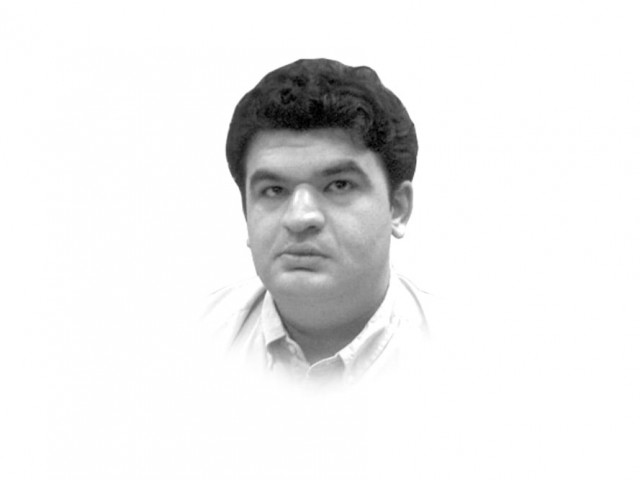Aafia Siddiqui revisited
When it comes to justice, we should care more about the process than individuals.

If I had to venture a personal opinion, I would agree that Aafia was, indeed, involved with a terrorist group. But our beliefs shouldn’t matter. Having levelled the accusation against her, the US was responsible for proving in a court that she was guilty of the crime. Instead, she was tried and convicted of the lesser crime of shooting at US personnel in Afghanistan.
The probable reason for why the US didn’t charge Aafia with terrorism is that it didn’t want to have to account for her lost five years, from the time she disappeared in 2003 till her sudden reappearance in 2008. In all likelihood, for those five years, she was being held either by the US or Pakistan or a combination of the two. It is certainly not beyond the realm of possibility that she was subjected to torture, a process prettied up with the “enhanced interrogation technique” euphemism.

When it comes to justice, we should care more about the process than individuals. Yet, the war against terrorism has been distinguished by a complete flouting of the rules of due process. The Americans simply whisk suspected terrorists into a legal black hole, either at Guantanamo Bay or at CIA black sites around the world. Pakistan has shown an equal appetite for dealing with suspected militants outside the confines of law. In Swat, there were credible reports of the military dangling and shoving suspected militants off helicopters. The intelligence agencies have preferred to brutally interrogate suspects in their secret cells instead of presenting them in a court.
Some have argued that the dismal conviction rate in terrorism cases forces the hand of the military, obliging it in the name of national security, to operate in an extrajudicial manner. This ignores the reality that in many cases, evidence cannot be brought in front of a court because it was obtained illegally through torture. And even in cases where poor police work, fearful witnesses and judges sympathetic to militants are to blame for acquittals, we should seek to improve the judicial process, not abandon it altogether.
Handing over the power to judge the guilt of a person without a public trial has surely led to abuses. A government which has the power to secretly detain its citizens and pronounce death or imprisonment on them will use that power to take on its opponents. Furthermore, even if that government turns out to be the only one in all of recorded history not to abuse its power, it will surely make mistakes. This is why we have a judicial process and to denounce someone as a terrorist until that process has played itself out is hasty and unwise.
In a sense, justice was delivered to Aafia because she had the opportunity of a public trial. We still need to recognise that the process was flawed since it didn’t rule on her whereabouts and activities for five years. Until that is done, it would be unfair to castigate her as a terrorist.
Published in The Express Tribune, December 7th, 2012.












1724319076-0/Untitled-design-(5)1724319076-0-208x130.webp)


COMMENTS
Comments are moderated and generally will be posted if they are on-topic and not abusive.
For more information, please see our Comments FAQ